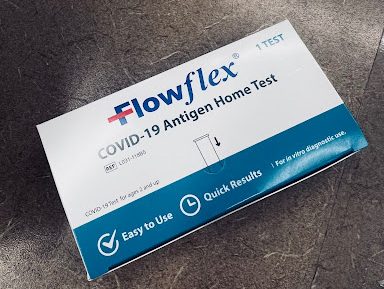On Aug. 22, the U.S. Food and Drug Administration announced the approval of a new Novavax COVID vaccine, as well as updated versions of the Pfizer-BioNTech and Moderna vaccines. According to NPR, this latest vaccine is already being distributed and administered across the country.
The predominant variant, KP.3.1.1, which is responsible for the surge in cases over the summer, now has the potential to double the number of COVID cases expected for the fall and winter of this year, according to CBS News Philadelphia.
To reduce the spread, medical experts believe the only proper course of action is for all who qualify to get vaccinated. “Given waning immunity of the population from previous exposure to the virus and from prior vaccination, we strongly encourage those who are eligible to consider receiving an updated COVID vaccine to provide better protection against currently circulating variants,” said Peter Marks, Director of the FDA’s Center for Biologics Evaluation and Research.
The Center for Disease Control and Prevention also recommends everyone over the age of 6 months receive the latest vaccine. Although some people may prefer to wait until October to receive both the flu and latest COVID vaccines together, The New York Times recommends that those over 65, and individuals with compromised immune systems, get the newest COVID vaccine as soon as possible, as they are at higher risk for severe illness.
According to the CDC, 16.3% of Americans are currently infected with COVID. Of those cases, 2.5% will require an emergency room visit.
CBS News reports that only 22.5% of the U.S. population chose to receive the second most recent bivalent COVID vaccine dose.
Some students here at SSU have taken note of the news about the latest booster. Jorge Mejia, a first-year business major, said, “I would get it as long as it’s tested and approved by medical professionals.”
However, according to Yale Medicine, many medical professionals now consider the term “booster” to be outdated. Because the virus has the ability to change and evolve, many in the medical community are now referring to them as “updated vaccines.”
Researchers have also suggested that the vaccine may require formula changes every year, similar to the flu shot.
James Platero and Justin Hou, both fourth-year SSU students, feel the vaccine is a step in the right direction. They also took note of the similarities between the flu shots and COVID shots. “If it was meant to only aid us, I see no harm,” said Hou.
Another similarity between the flu and COVID is their seasonal nature, with the winter months being the most challenging for illness. However, according to the BBC, “virus interference” may cause COVID spikes to become more unpredictable, rather than strictly seasonal.
Anyone interested in getting the vaccine can visit https://www.vaccines.gov/en/ for more information



































